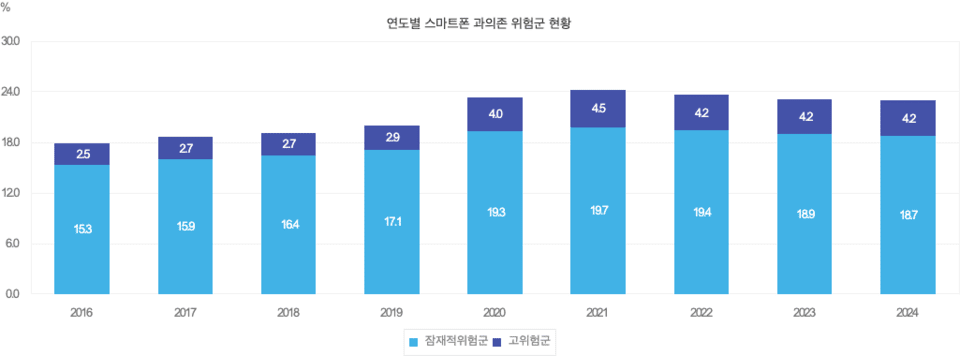Have you ever found yourself frequently checking your smartphone even when there are no messages or notifications? If you reach for your phone even when the screen is off, it might already be an addiction. As of 2025, the trend of ‘digital detox’, living without smartphones, is spreading overseas.
The Washington Times reported that in the first quarter of 2025, more than 3.2 million feature phones, also known as ‘dumb phones’, were sold worldwide. Dumb phones are simple mobile phones that only have calling and texting functions, referring to products from the pre-smartphone era. This is an increase of about 15% compared to the same period in 2023.
The French current affairs media, Journée Mondiale, analyzed that indiscriminate smartphone notifications, SNS fatigue, and digital overload triggered this trend. Specifically, 63% of respondents aged 18-34 and 77% of those aged 35-54 expressed a desire to return to the era of living without smartphones and the internet. It’s not just nostalgia but a practical resistance against smartphone fatigue.

Nokia re-released the popular model 3310 from the 2000s with modern specifications. The design remains the same, but it features 5G, a large-capacity battery, and an operating system that only runs essential apps. It is a representative case combining simplicity and functionality.
The company explained that the re-release decision was made to meet the demands of users seeking digital well-being and analog sensibility. It is considered a representative case symbolizing the trend of reducing everyday fatigue.
Countries recognizing digital fatigue are also taking institutional responses. Some European countries have legalized the ‘right to disconnect’, restricting work-related contacts after official working hours. Schools are responding by limiting smartphone use during school hours or collecting devices.
At home, practices like ‘digital night rest’, which involves keeping smartphones at a distance during meals and before bedtime, are spreading. HMD’s ‘Shut the Phone Up Sunday’ encourages people to turn off their smartphones for a day and focus on offline activities. HMD reported that many participants felt at ease.
Governments are addressing the issue of digital fatigue at a national level. In 2024, they invested 14.7 billion won in the ‘Internet Addiction Prevention Plan,’ a 55% budget increase from the previous year. Policies are being pursued in various areas, including expanding preventive education, strengthening counseling and healing infrastructure, conducting whole population surveys for high-risk groups, and operating tailored programs.

The ‘Comprehensive Plan for Internet Addiction Prevention and Resolution,’ jointly established by eight ministries, including the Ministry of Science and ICT and the Ministry of Gender Equality and Family, prepares an integrated support system across all life stages, from infants to adults. Nationwide, centers such as I-Will Centers, Youth Counseling and Welfare Centers, and Smart Shelters offer counseling, education, family counseling, and follow-up management.
Particularly, the National Youth Internet Dream Village located in Muju, Jeollabuk-do, operates residential healing programs targeting middle and high school students, and Seoul’s I-Will Center has provided preventive education to over 330,000 individuals for the past decade. The National Mental Health Center’s ‘HORA Program’ assists in recovering self-control and autonomy through residential treatment, including for adults.
Seoul is leading a ‘Steady Digital Detox’ campaign, engaging citizens in walking, art activities, and experiential programs to encourage voluntary participation. Prevention education materials for all age groups are provided free of charge at Smart Rest Centers.
Digital detox is no longer a distant story. Korea is also establishing an institutional foundation and professional infrastructure to respond actively. The moment you put down your smartphone could be the start of a deeper life.